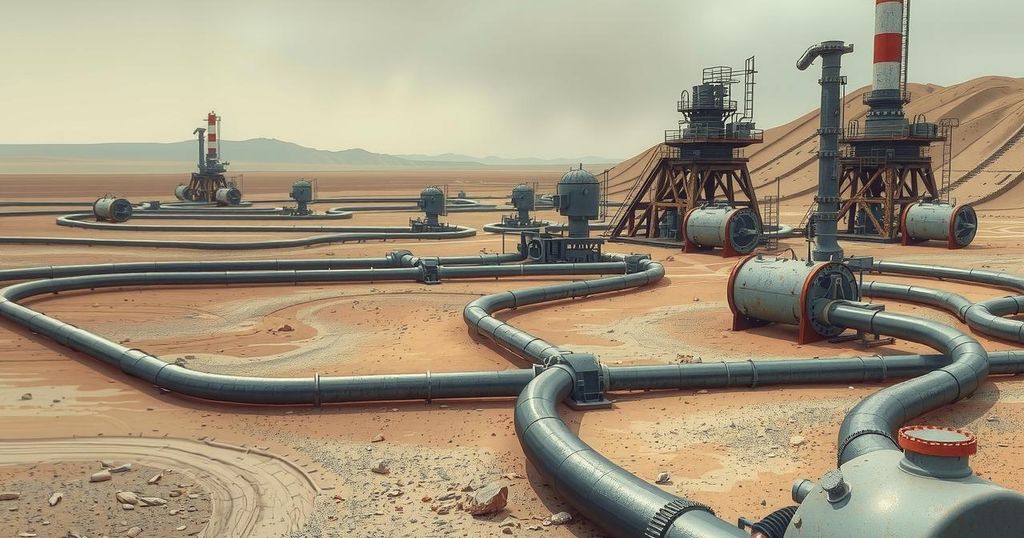U.S. Export-Import Bank Approves $4.7 Billion Loan for Mozambique Gas Project
The U.S. Export-Import Bank has approved a $4.7 billion loan for a TotalEnergies LNG project in Mozambique, amidst significant controversy involving a local insurgency and alleged human rights abuses. Originally approved at $5 billion in 2019, the loan’s backing emphasizes the federal move toward fossil fuels, yet ongoing violence has raised ethical concerns regarding the project’s safety and human rights implications.
The U.S. Export-Import Bank’s board has unanimously approved a $4.7 billion loan for a contentious liquefied natural gas project in Mozambique, underscoring alignment with President Donald Trump’s fossil fuel initiatives. This loan supports an LNG facility built by TotalEnergies SE in Afungi, an area embroiled in an ongoing Islamist insurgency and associated with a reported massacre of civilians by government-aligned security forces.
Originally, a $5 billion loan was sanctioned in 2019, citing the project’s potential to generate thousands of American jobs through the provision of U.S. equipment and services. This figure was later adjusted to $4.7 billion, marking it as the largest deal in the agency’s history. However, security concerns escalated when Islamist rebels seized the region in 2021, resulting in substantial loss of life and halting TotalEnergies’ operations.
The security forces tasked with protecting the gas facility have faced serious allegations, including abduction, torture, and extrajudicial killings. Investigations into these incidents by judicial authorities are ongoing, while TotalEnergies has consistently denied any allegations of misconduct related to its project operations.
In conclusion, the approval of the $4.7 billion loan by the U.S. Export-Import Bank for TotalEnergies’ Mozambique LNG project highlights significant concerns. The project is embroiled in controversy due to the ongoing Islamist insurgency and severe allegations against security forces. Despite prior support affirming job creation, various complicating factors, including violence and human rights abuses, raise essential questions regarding the ethical implications of such foreign investments.
Original Source: www.eenews.net




Post Comment